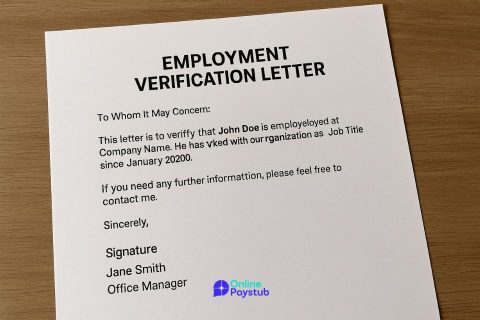A ratified contract refers to a legally enforceable agreement in which all named parties have provided formal consent to the terms outlined within the document. This form of contract holds legal weight only once all parties have accepted the obligations stated, typically by signing and acknowledging the contents through an authorized process.
In legal and transactional contexts, ratification signifies more than general agreement. It represents confirmation that each participant has both the intent and the capacity to be legally bound by the contract’s provisions. The absence of ratification may leave the agreement in a tentative state, with no legal remedy available in the event of non-performance.
This distinction is especially important in real estate transactions. A purchase agreement, for instance, is not considered enforceable until ratification occurs. Even if both the buyer and seller have reviewed the terms, the contract becomes binding only once it has been properly finalized through formal acceptance procedures. Without this step, there is no recognized legal framework to uphold rights or enforce obligations.
What Makes a Contract Legally Ratified
A contract becomes legally ratified only when specific legal elements are present and properly executed. Mere intention or partial performance does not meet the threshold. Ratification is the procedural and legal confirmation that all prerequisites for enforceability have been satisfied.
The first requirement is mutual assent, meaning that all parties have reviewed the exact terms and have given full, informed consent. This assent must be free from coercion, mistake, or misrepresentation. Legal systems view this as the foundation for establishing valid contractual relationships.
Another essential element is legal capacity. Each party involved must possess the authority and mental competence to enter into binding agreements. For instance, a contract signed by a minor or someone acting outside the scope of their legal authority may remain voidable until ratified by a qualified representative or upon reaching legal maturity.
Consideration must also be present. This refers to something of legal value exchanged between the parties, such as payment, services, or mutual obligations. Without this element, the agreement lacks the structure required for enforceability.
Documentation and formality are often required depending on jurisdiction or contract type. While some agreements may be upheld with implied conduct, others such as those involving real estate or large commercial assets require written confirmation and delivery to all involved entities.
Lastly, intent to be bound must be clear. This can be demonstrated through signature, delivery, or commencement of duties under the agreement. If one party knowingly accepts benefits under the proposed terms, their conduct may function as implied ratification.
How a Ratified Contract Differs from a Signed or Executed Contract
While the terms ratified, signed, and executed are often used interchangeably, each carries distinct legal meaning. These differences are critical when evaluating the status and enforceability of a contract.
A signed contract indicates that the parties have physically or digitally endorsed the document. However, signature alone does not always establish legal enforceability. Additional conditions such as delivery, acceptance, and in some cases, authorization must be met for the contract to attain ratified status. Signing may represent intent, but it is not the final determinant of legal obligation.
A ratified contract is one in which all parties have not only signed but have also satisfied all legal conditions required for enforceability. This includes mutual consent, legal capacity, and proper authorization. Ratification may occur after signature if certain conditions were pending or authority was uncertain at the time of execution. In such cases, post-signature conduct or formal approval can complete the ratification process.
An executed contract, by contrast, refers to a contract in which all terms have been fully performed. Execution here does not mean signing, but rather the complete fulfillment of obligations by all parties. An executed contract is the final stage, not the initial commitment. For example, a real estate sale is considered executed once the title is transferred and funds are disbursed in accordance with the ratified agreement.
Legally Binding Status Without Formal Ratification
Contracts that lack formal ratification may still hold legal effect under specific conditions, but enforceability is not guaranteed. In many jurisdictions, courts examine conduct, authority, and mutual benefit to determine whether legal obligation exists despite the absence of formal consent.
Some agreements become binding through implied ratification, where parties proceed with actions aligned with the contract’s terms. Accepting payment, delivering goods, or fulfilling service obligations often signal intent. These behaviors may be interpreted as sufficient confirmation, particularly in commercial transactions where speed and utility override formal procedures.
Apparent authority plays a significant role. If one party reasonably believes that the other had the right to commit on behalf of an organization or individual, and proceeds accordingly, that belief may justify enforcement. This scenario arises frequently in employment settings or corporate purchasing, where internal approvals lag behind execution.
Partial performance can also influence legal standing. If a party begins to fulfill contractual obligations and the other accepts the benefit without objection, ratification may be inferred. In such cases, silence or failure to dispute terms could be interpreted as consent.
However, lack of formal ratification increases exposure to legal risk. Courts may refuse to enforce terms if material provisions remain ambiguous, incomplete, or unauthorized. Even minor procedural flaws—like unsigned pages, undelivered copies, or absent consideration can void enforceability.
Can a Contract Be Enforced Without Formal Ratification
Contracts may become enforceable even without formal ratification if specific legal conditions are met. If parties act in a way that confirms acceptance such as delivering goods, making payments, or receiving services the agreement may be upheld through implied conduct. Legal systems evaluate whether both sides intended to be bound and whether performance began based on shared terms. In such cases, courts focus on practical actions rather than the presence of a formal signature or written acknowledgment.
How Does Ratification Apply to Minors or Unauthorized Agents
When a contract involves a minor or an unauthorized agent, it may be considered voidable rather than void. A minor can choose to affirm or reject the contract upon reaching the age of majority. Similarly, if an unauthorized individual enters into an agreement, the principal or organization they represent must approve the contract for it to become valid. Without that approval, the agreement lacks enforceability. If ratification occurs either by action or written consent the contract gains legal effect.
How Digital Signatures and Emails Factor into Ratification
Electronic communication plays a growing role in ratification. Digital signatures, email confirmations, and even automated workflows can signal legal consent if jurisdictional laws recognize these methods. Courts examine whether the digital exchange clearly shows intent, authority, and agreement to terms. If so, the contract may be treated as ratified, especially when supported by timestamps, identity verification, and documented delivery. These tools have become widely accepted in both commercial and legal environments.




No comments to show.